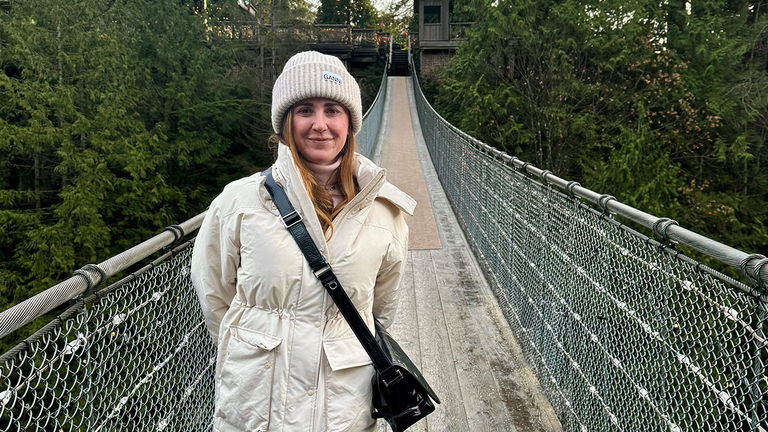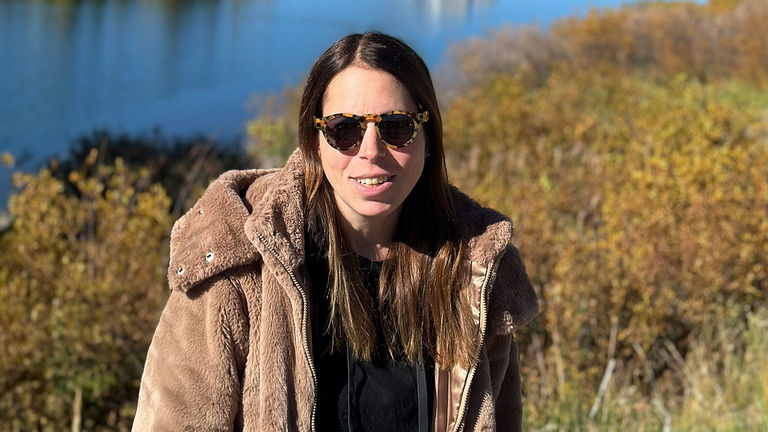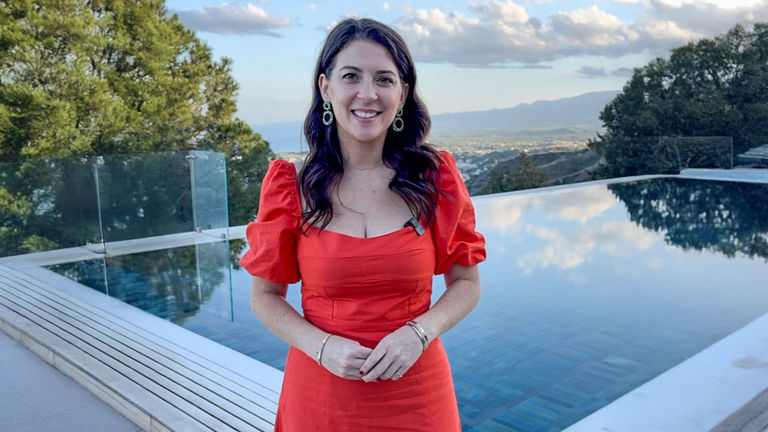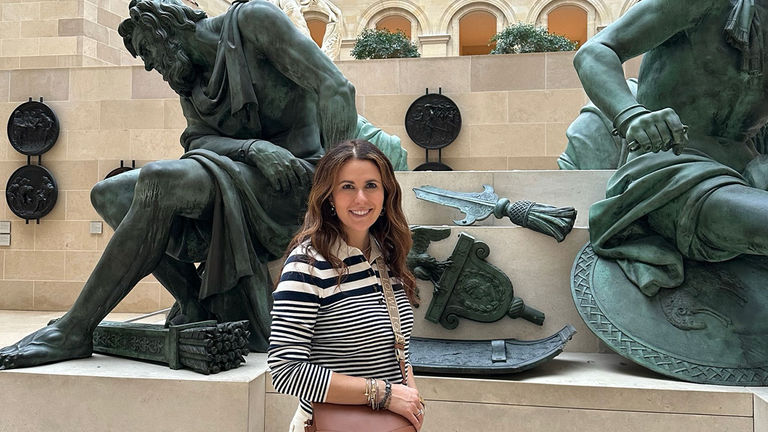Reaching $1 million in sales is a major career milestone for travel advisors. It’s an achievement that opens doors to exclusive industry events and quickly communicates to suppliers that an advisor is “serious.” And in a career where the bulk of income comes from commissions earned on booked travel, the higher the sales, the higher the salary.
However, study after study shows that brand-new agents don’t tend to earn much. According to the 2024 Travel Industry Survey by Travel Weekly (a sister publication of TravelAge West), 74% of advisors with two years of experience or less earn under $25,000 — and only 3% earn more than $100,000 per year.
So, who are these unicorns? And how did they reach $1 million in their first 12 months of business? Four advisors who achieved this early success share their key takeaways.
Leverage Your Personal Network
In September 2023, Reagan Jamail found out that she was being laid off from her decade-long job as a project manager for Google. The company gave her two months’ notice.
She had considered leaving tech on and off for years to pursue her passion for travel, but it was hard to break free from “the golden handcuffs.” However, once she found out she was being let go, she reached out to her friend and personal travel advisor, Courtney Beaver of SmartFlyer, who she had worked with over the course of 12 years on big trips to Southeast Asia and Africa, among others.
 Working with a travel advisor on major trips inspired Reagan Jamail’s career.
Working with a travel advisor on major trips inspired Reagan Jamail’s career.
Credit: 2025 Reagan JamailBeaver told her about SmartFlyer’s next “Take Off” cohort for new advisors. Jamail said she submitted her business plan for Reagan Jamail Travel, which quickly made her realize what she needed to do to be successful.
“The application process required me to explain how I would market myself, what my network looked like and whether I would use a website,” she said. “It made me realize that the onus falls on me — they don’t give you leads. You’re responsible for generating clients and business on your own.”
Carly Ritter, another SmartFlyer affiliate and owner of Elite Travel by Carly, also analyzed her potential client pool when applying for the new advisor program. She felt confident she would attract clients due to her 20-year career as a fashion and beauty publicist, as well as through her involvement at her child’s preschool and with her own nonprofit.
Broadcast Your New Career
While having a large, affluent network is helpful, “clients don’t appear out of thin air,” says Eli Wagner of Coastline Travel Advisors and Wagner Bespoke Travel.
“I put myself out there,” she said. “I would be out and about and have no shame saying, ‘I just opened this company. I would love to chat with you.’ It came up naturally in conversation with friends of friends.”
I would be out and about and have no shame saying, ‘I just opened this company. I would love to chat with you.’
Rachel Barone, an advisor with In the Know Experiences and TravelByBarone, says that those first clients are key.
“You have to be a rockstar and crush those first few trips, so you become a go-to advisor for your personal network,” she said.
 Rachel Barone worked with high-net-worth clients in her past career, which helps her understand their wants and needs.
Rachel Barone worked with high-net-worth clients in her past career, which helps her understand their wants and needs.
Credit: 2025 Rachel BaroneFor example, she landed several group trips early on, including a 30-person trip to St. Barts.
“Within that group, a few people hadn’t used an advisor before, so they were very impressed,” Barone said. “Then, they reached out for five other trips in the next year.”
Jamail emailed her personal and professional network with news of her career change — and landed her first corporate client via her first friend at Google, who is now a vice president of human resources at a fully remote tech start-up.
She booked travel for 120 employees for a domestic event — a $300,000 booking that helped her blow past her initial annual sales goal of $250,000. That corporate client, plus some high-net-worth individuals booking $30,000 to $50,000 vacations, led to her sales success.
Happy clients like to share their positive experiences with friends, so word-of-mouth referrals can “spider web,” Wagner says. Three years into her career, she has not met more than 80% of her clients, and she has spent no money on marketing.
These days, social media can also play an impactful role in getting referrals. Ritter, for example, got a repeat client after a local Instagram mom influencer tagged her in a few posts.
Work Full-Time
Travel advising is often promoted as a viable side hustle that passionate travelers can do outside of a full-time job, or when their kids are asleep.
For six months after Wagner left her decade-long career as an on-site lawyer for two televised game shows, she dabbled with booking travel. But when her first commission check came in, something clicked inside her, and in the next six months, she reached $1 million in sales. (In her second year, she reached $8 million in sales, and in her third year, with several full-time advisors working with her, she reached $16 million in sales.)
 Eli Wagner says that a travel advisor must be a jack of all trades.
Eli Wagner says that a travel advisor must be a jack of all trades.
Credit: 2025 Eli Wagner“I was going to do it 110%,” Wagner said. “I created a website and a company Instagram and was all over the internet screaming to everyone that this is my business, and I take it super seriously.”
Jamail says that advisors who still have their full-time job can’t network, attend events or respond to clients in real time. Ritter adds that the job is time-consuming and that she works until midnight on most days.
“No trip is just a trip,” she says, stressing that there are many components to a high-touch booking, from mid-trip check-ins and transfer reservations to communicating with suppliers to remedy any client issues while traveling.
Put Your Skills to Work
The most successful first-year advisors come into the business well-traveled and with a suite of relevant skills, though Wagner says there’s “no path” to advising, and that agents must be a jack of all trades.
Ritter says being a “people person” has helped her nurture client and supplier relationships. In her last job at a public relations agency, she oversaw more than 15 clients and created large-scale events.
“A trip is similar to an event — you are planning it soup to nuts,” she said.
Thanks to her work as a project manager, Jamail was quickly able to create a workflow that could handle all the moving parts of the job, enabling her to start booking trips right away.
She relies on Notion for project management, Axus for creating trip itineraries and building quotes, SmartFlyer Society for customer relationship management and Google Docs for organizing all her client templates.
“Even when I thought I was twiddling my thumbs, or waiting for a trip form submission, it gave me more time to research and get organized,” Jamail said.
 Carly Ritter says that planning events is a lot like creating a travel itinerary.
Carly Ritter says that planning events is a lot like creating a travel itinerary.
Credit: 2025 Carly RitterShe adds that other advisors seem overwhelmed by the sheer amount of information they need to keep up with.
“Every supplier does things differently, every supplier pays differently, and you learn by doing,” she said. “Because I love creating spreadsheets and documents, it has benefited me well."
Meanwhile, Barone’s 15-year career as a financial services executive at JPMorgan and American Express — where she served C-suite executives and high-net-worth clients — prepared her for the fast pace and pressure of travel advising. Her college studies in psychology also helped her excel at customer service for people who can afford anything.
“It’s about time being money,” she said. “While clients can afford all kinds of experiences, it’s about knowing their wants and needs.”
A passion for travel and a respect for the art of creating trips — and what that can mean for a client — is also essential.
“Find what you are good at, and what you really enjoy,” Wagner said. “I was never a salesperson. I love luxury and luxury hotels specifically. I enjoy room service and the robe and that whole experience. When I convey that to clients, they see that passion.”
Find Reliable Colleagues
Even top advisors can become overwhelmed by the vast and fast-changing information needed to book travel. But they tend to have a secret weapon — an invested mentor and/or network of pro advisors who support them.
Jamail says that in her first year, she spoke with her mentor two times per week on topics ranging from, “What is your favorite hotel in this destination?” to “What is your experience with this tour operator?”
Now, she relies on SmartFlyer’s internal Facebook group, where she can easily search through past conversations about these sorts of queries, as well as her agency’s and Virtuoso’s internal database of trip and hotel partners for various budgets.
For Barone, it was important to choose a host agency that felt boutique, but that also had the resources and influence of a large network. She credits her agency’s seasoned advisors — as well as Internova’s leadership team — with giving her a leg up.
I didn’t realize how collaborative this industry is. There is so much business to go around.
“I didn’t realize how collaborative this industry is,” she said. “There is so much business to go around. No one is afraid to say, ‘Here’s the yacht person I use in Los Cabos,’ or ‘Here’s the best partner I use for a South Africa safari.’ Everyone wants to help.”
See Suppliers as Partners
Ritter stresses the importance of seeing suppliers as partners. She always conducts post-trip calls with clients and then calls suppliers to share client feedback.
“You need to maintain the partner relationship, so they want to take care of your clients,” she said.
Wagner travels frequently to check out products and cultivate relationships with suppliers so they understand she is serious about customer service. And for all these advisors, success relies on who you surround yourself with.
“Once you get a client request, you leverage your network of other advisors and your amazing partners,” Barone said.
Living in a major city is also an advantage when it comes to building partner relationships.
Jamail, who lives in Austin, Texas, says that lunches with SmartFlyer’s partners have been great networking opportunities. And while Barone invests in attending events to meet new partners, she says that living in New York City affords her constant access.
“Even if I can’t go to every conference, we get so many partners coming through the city — so, I try to attend every lunch or breakfast I can,” she said.
Learn From Challenges
Jamail’s setbacks have taught her key lessons. One couple let Jamail know that they would be booking her itinerary themselves — before they paid her planning fee. So, she has doubled down on her fee and includes it early on with her terms and conditions. She says clients who resist the fee are a red flag, and the only ones she has had to turn away.
For Wagner, the numerous differences among suppliers’ “personalities, work ethics and cultures” used to frustrate her. But now that she has adapted to that diversity, it is one of her favorite parts of the job. And because even the best-laid plans are subject to miscommunication among partners, weather events, geopolitical happenings and client mistakes, having a proactive crisis communication plan is essential.
“I pick up the phone and manage it,” Ritter said. “You need to make sure the client knows you are on their side.”
Wagner says she ensures that clients who have challenges during their vacation are “upgraded in the next spot on their trip.”
“Or I send them something special,” she added. “Those clients are the most loyal after."
Ultimately, advisors who reach early success are proactive. They know how to attract and maintain clients, while growing their expertise in booking travel and being business owners. They come to advising with past career success and apply those skills and innate ambition to their job. Most importantly, they understand they are part of an industry, and leverage and nurture relationships among their clients, colleagues and partners.